“Koreans say you can tell a person’s disposition by reading their facial expression at rest. It’s called insang. You could say a person has a warm insang, or a nervous insang, or an insang that shows they’ve been through a lot of hardship. My mother’s face settles into a flat, almost stern look. It is the face of someone who doesn’t normally face others. I imagine I wear that face when I am in front of the computer screen at night. One might call it apathy or stoicism. One might say there has been damage to the cerebral cortex affecting the emotions. Or one could say it is a well-managed denial of loneliness. I watch my mother and I long for her to say something to me, anything. My affections send their little minions to her door and stand there, waiting expectantly. But her door has been shut for years, covered with a heavy overgrowth of ivy. ”
—from the short story, “Learning to Walk,” by Ann Shin
“Han”: A play on “Hanguk” which means “Korea”; also refers to a history of suffering among Koreans. It can also mean “big,” “some,” or “one.”
“Kut”: Can mean agitation, grassroots ritual, political art, collective action, or noisy, also describes a type of spiritual exorcism conducted by a mudang (female shaman).
Han Kut: Critical Art and Writing by Korean Canadian Women is an anthology of writing and visual art that asks what are the creative possibilities of being Korean, Canadian, and a woman at this particular historical moment? This book offers a variety of meanings and perspectives on how the identities of race, gender, sexuality, class, ability, religion, and nationality shape and inform the ways in which Korean Canadian women are seen, and more importantly, see themselves. From deeply personal vignettes to broader critiques of Canadian society, this anthology provides a diverse collection of short stories, prose, poetry, visual art, academic and personal essays that contribute to building a more complete landscape of published works by, for, and about Korean women in Canada.
Jenny J. H. Ahn is currently working in the Education Department as a National Representative with the Canadian Auto Workers Union (caw). She was also elected President of caw Local 40 and Vice-President of the caw National Executive Board (neb)—the first women of colour and the youngest member ever elected. She has been involved in a number of social justice issues and is committed to fighting ableism and racism. She is a founding member and Co-President of the Asian Canadian Labour Alliance (acla), a community based organization of progressive trade unionists of Asian descent and their allies. In 2003, Jenny received the Social Activist Award from the Metro Network for Social Justice. She continues her work with her union as well as with acla, the Our Times magazine Advisory Board, and as a Toronto and York Region Labour Council Executive Board Member ([email protected]).
Elaine K. Chang was born in Vancouver, and received her ba (Hon.) in English at the University of British Columbia and her MA and Ph.D. in Modern Thought and Literature at Stanford University. Her experimental film work premiered at the Tenth Annual Toronto Reel Asian International Film Festival in November, 2006, and she is currently editing a book on independent Asian Canadian film and video, Reel Asian: Asian Canada on Screen (forthcoming 2007). She has published essays in the areas of feminist and postcolonial theory, Asian North American fiction and autobiography, film and popular culture, and critical studies of race and ethnicity, as well as poetic and dramatic work. She has been awarded fellowships from the Mellon Foundation, Social Sciences and Humanities Research Council, and the Center for the Critical Analysis of Contemporary Culture, and also the 2004 Central Student Association Teaching Excellence Award at the University of Guelph, where she currently teaches contemporary literary and cultural studies.
Michelle Cho is a 29-year-old Korean-Canadian woman. She is an organizer and researcher with the Urban Alliance on Race Relations, where she organized the Toronto Coalition for Equity in Education, working to address systemic racism in public education. She has also organized political leadership training for youth and women of colour interested in electoral politics. She is a member of Han K?t, a Korean women’s collective committed to anti-racist, feminist and queer organizing. She has extensive anti-racist organizing, public education, research, and community development experience.
Julianna Choi: I became a reader first: as a child, I would hide in my closet reading Nancy Drew mysteries by flashlight. As an adolescent, I believed my pen was my voice and so I woke up in the middle of the night to write about snowstorms and angels. Today, I practice both fiction and poetry, prodded on by my fellow writers in our group, Inconceivable Writings. Currently, Kazuo Ishiguro and Miriam Toews keep me up at night. For the last decade, I’ve been a teacher helping reluctant teenagers enjoy books and the sounds of their voices on paper. And in order to recuperate from that effort, I occasionally paint abstract images but most often, you’ll find me in the kitchen, cooking with voluminous amounts of garlic and wine for my loved ones.
Far-San (far mountain) likes storytelling, visualizing, humming and improvisational piano playing. She has a good memory of context, especially scent, background sound, image of people, emotive signs and ambience, whereas she has a terrible memory of numbers, such as birthday of her best friends or memorial day of her father, and verbatim titles of songs and books. She studies, thinks, interprets, analyzes, critiques of power dynamics in micro and macro human-social relationships in mostly academic space at the risk of losing her capacity of feeling and intuition.
Young-Hwa Hong is a doctoral student in the Department of Sociology and Equity Studies in Education at Ontario Institute for Studies in Education of the University of Toronto. Her research looks at how skilled immigrant women are racialized and gendered in the Canadian labour market. She has also been involved in community work serving as a cultural interpreter, Korean seniors’ program facilitator, and hiv/aids outreach worker for Korean youth.
Jin Huh (Collective Member) was born in Seoul, South Korea and grew up in northwest Toronto near Jane and Finch and then later in suburban Scarborough, Ontario. She is an educator, community worker, writer, ex-grad student, and closet karaoke superstar who has been involved in political struggles related to anti-racist feminism, anti-imperialism, the environment, and sexual health.
Merose Hwang is a Ph.D. candidate and lecturer of Modern Korean History at the Department of East Asian Studies, University of Toronto. She wrote her ba thesis in Native American Shamanism through the Religious Studies Department at the University of Colorado, Boulder and attended the ma program on Korean Indigenous Religions at Yonsei University. She has held positions as a research fellow at the Institute for Korean Studies (iks), Yonsei University in Seoul and as a visiting scholar in Seoul for Korea Foundation. She has worked as a freelance translator for the Academy of Korean Studies at Seoul National University and iks. Merose continually aspires to learn and teach in ways that can help Korean diasporic women combat the daily violence we face through our shared histories of colonial racism, classism, and sexism.
Helen H. Kang was born in Korea and moved to Toronto 20 years ago. She is fluent in both Korean and English. She is currently pursuing a doctorate degree in Sociology at Simon Fraser University, focusing on cultural studies and hiv/aids.
Julie Kang was raised in a variety of communities in Ontario, and now resides in Toronto. In sharing stories from her life and in gathering and sketching stories drawn from the lives of people around her, she hopes to spark recognition of what is common and contribute to understanding of what is different, between people. She enjoys unearthing truth and beauty in the details of life in her writing, and is a student hoping to work in advocacy for equity in community health and literacy in the future.
Gloria U. Y. Kim is a Toronto-based filmmaker, writer and photographer. Her writing has appeared in Maclean’s, FilmPrint, Canadian Business and Fireweed. Her series of six Polaroids, Madwoman, appeared at the Christmas Group Show at Engine Gallery in 2004. Her films have screened at the Toronto Reel Asian International Film Festival, the Women of Colour Film Festival, Inside Out Film Festival, POW! Film Fest, and most recently at the 2006 Female Eye National Day of Remembrance and Action on Violence Against Women. Her experimental documentary, Partial Selves (9 min., 2000), won runner up for the Best Experimental Film at the 2003 International Festival of Cinema and Technology. Gloria is currently working on her newest short film, Rock Garden: A Love Story, for which she has received support from the Canada Council for the Arts, Ontario Arts Council, Toronto Arts Council, as well as the wift/ cbc Canadian Reflections Award, Bravo! fact and nfb fap. Born in Seoul, Korea, Gloria emigrated to Canada when she was three years old. Gloria works as a reporter for Maclean’s magazine and spends her free time writing.
Hana Kim is presently the Korea Studies Librarian at the Cheng Yu Tung East Asian Library of the University of Toronto. She is responsible for collection management and development and services relating to Korean Studies. She holds a B.Ed. in Education (German Language and English Language) from the Korea National University of Education, South Korea and an mlis from McGill University, Canada. Previous to this, she obtained National Accreditation Authority for Translators and Interpreters (naati) from the Royal Melbourne Institute of Technology (rmit) in Melbourne, Australia. She is also an active translator and won The First Annual Min Chapbook Competition for her translation of poems by Cheonhak Kwon. The translations were published in a book entitled 2H2 + O2 = 2H2O.
Isabelle Kim: Isabelle/Kyong-Hee is an avid letter-writer and aspiring videomaker. She recently defended her Ph.D. thesis, “Youth Videomaking Projects: A Spoken Word Study” at the Ontario Institute for Studies in Education at the University of Toronto (oise/ut). Isabelle has been working in community arts and education over the last several years. She currently lives in Toronto with her son and husband.
Jane G. Kim graduated from York University, receiving Honours in her double Bachelor of Arts degrees in English and Communications. Always harboring the love to write poetry and prose inspired Jane to take her work out of the classroom and into the literary world. Upon graduating from university, Jane held various support positions in the entertainment industry. Her ultimate goals are to write and produce screenplays in addition to penning short stories and young adult novels. “The Funny Looking Dress,” her first short story to be published, represents her attraction to the combination of autobiographical pieces with fictive anecdotes. She is thrilled to contribute to this anthology, and she looks forward to sharing her work with readers who can appreciate a light-hearted, hopeful coming-of-age story. Jane currently resides in Toronto.
Nuri Kim was born and lived in Busan and Seoul Korea until 1998 when, at thge age of 26, she moved to Toronto for a break and change. She went to graduate school and worked for a women’s non-profit ngo against violence and discrimination. She was also part of community initiatives for peace, justice, and community art. Feeling that it was time to live in Korea for a while, she returned to Korea to participate in the 2005 Women’s World Congress held in Seoul and stayed. Since then, she divides her time between Toronto and Seoul, often crossing the fourteen-hour time difference.
Melissa Min Seon Kim is completing her double major in Criminology and Sociology at the University of Toronto. Planning to attend law school next year, she aims to focus on immigration and refugee law in order to address the numerous barriers that immigrants and refugees face in the Canadian legal system. After a few years of practicing, she hopes to work in policy, feeling that this is the most effective way to implement change within society.
Helen Lee is an independent filmmaker whose films include: The Art of Woo; Subrosa; Prey; My Niagara; and Sally’s Beauty Spot. She is a graduate of the University of Toronto, New York University, Whitney Independent Study Program, and the Canadian Film Centre. Helen was a recipient of a 2002 daad Artist Fellowship, 2004 Chalmers Award and Korea Foundation Fellowship (2004/05). She serves on the advisory boards of the Toronto Reel Asian Festival and Cinematheque Ontario. Helen was born in Seoul, Korea, where she currently makes her home, with frequent trips to her other home in Toronto. And she wants you to know that she’s the eldest of three siblings—because birth order is everything.
Min Sook Lee is an award-winning documentary director/producer. Her documentary, El Contrato, which examines at the lives of migrant farm workers in Canada was nominated for a Gemini Award for Best Social/Political Documentary in 2005. Hogtown, which looked at the politics of policing in the city of Toronto garnered the Best Feature-Length Canadian Documentary prize at the 2005 Hot Docs film festival. In 2006 she completed Borderless, a docu-poem on the lives of undocumented workers in Canada, which has screened in festivals across Canada and internationally. She is currently working on a documentary, Tiger Spirit, which focuses on the reunification of the two Koreas.
Patricia Lee (Collective Member) is a second generation Korean-Canadian writer and media artist working in the fields of film, video and interactive design. She has worked as an Educator and Manager in various social justice, community arts, and violence against women organizations in Toronto.
Ruthann Lee (Collective Member) was born and raised in Toronto. She completed her Master’s thesis on “coming out” narratives in 2003 and is currently a doctoral student at York University in the Graduate Programme in Sociology. She has published in Women & Environments and guest edited a special journal issue on “Lesbian, Bisexual, Queer, Transgender and Transsexual Sexualities” for Canadian Woman Studies/les cahiers de la femme. Her more recent work examines representations of Asian North American masculinities in popular culture. Among other things, she identifies as a radical queer Korean Canadian writer, theorist, artist and activist.
Una Lee’s writing has appeared in the Toronto Star, Fireweed, and Rice Paper. She founded and edited big boots, an internationally distributed zine about the experiences of women and trans people of colour. As a graphic designer, she has helped craft social movement campaigns at local and national levels. Her design work has been recognized by Applied Arts Magazine and the Advertising and Design Club of Canada. Una lives in Toronto ([email protected]).
Jane Park grew up in Edmonton and Vancouver, Canada. She studied English Literature at Queen’s University. Currently, she lives in New York. She has been previously published in Echoes Upon Echoes: New Korean American Writings, and The Queen’s Undergraduate Journal.
Hijin Park (Collective Member) was born in Korea and raised in Edmonton, Alberta. She is a Ph.D. candidate in the Department of Sociology and Equity Studies in Education and an Instructor in the Equity Studies Program at the University of Toronto. She has published articles on racialized sexual violence, Canadian immigration and refugee policy and the Los Angeles “riots.” Her current work examines how discourses of multiculturalism and globalization operate to erase Canadian imperialism.
Ann Shin’s writing has been published in anthologies and magazines in Canada and the U.S., including On a Bed of Rice (Anchor Books) and Geography of Encounters (Rowman and Little Press). Her latest book of poetry is The Last Thing Standing (Mansfield Press). Her award-winning documentaries have screened at festivals around the world. Titles include: Westerneyes; Four Seasons: A Mosaic; Incident at Roswell; Almost Real. She lives in Toronto, currently working as a television producer and writing a novel.
Suzy Yim, a.k.a “Titty-Titty Bang-Bang,” is a gender-performing, sex-positive, queer activist, advocate, and ally. In her academic life, Suzy is researching the social epidemiology of hiv and is managing a project in Thailand looking at hiv vaccine acceptability by commercial sex workers, men who have sex with men, and injection drug users. Suzy is currently doing her Masters of Social Work at the University of Toronto, specializing in mental health.
Jean Yoon is an actor, writer, and theatre artist. Born in Illinois and raised in Toronto, Jean has lived and worked in Vancouver, Edmonton, Harbin City and Yanji City in North Eastern China, and makes Toronto her home. Jean has published poetry, short fiction, essays and articles in a number of journals, magazines and anthologies. A pioneer in the Asian Canadian theatre community, Jean is best known as the writer/creator of The Yoko Ono Project, a multimedia performance art comedy, produced by Loud Mouth Asian Babes/Theatre Passe Muraille in Toronto 2000, by the Firehall Arts Centre in Vancouver 2001 and published by Broken Jaw Press in 2002. Her comical adaptation of a classic Korean folktale Hongbu and Nolbu: The Tale of the Magic Pumpkins premiered at the Lorraine Kimsa Theatre for Young People to great response in spring 2005.
Sylvia Yu is a journalist based in Beijing, China. She has worked in Victoria and Vancouver as news reporter for Global tv and cbc radio, and as a tv producer for a national current affairs show in Toronto. She is the author of a biography published in 2002, Heart and Soul: The Life Story of Pastor Augustus Chao. Her work has appeared in The Toronto Sun, The Globe and Mail, Elle Magazine, Vancouver Magazine and The Halifax Herald. Currently she is writing her second book, which focuses on the stories of the survivors of Japanese Military sexual slavery.
Acknowledgements
Introduction
Korean Canadian Women’s Anthology Collective
I. Learning to Fall
How to Make Pogee Kimchee, Or Ingredients of One Korean Canadian Woman
Helen H. Kang
Halmonee
Jean Yoon
Falling
Jane Park
Lost
Jin Huh
“Coming Out” as a Queer Korean Woman in Canada: A Personal Cultural Narrative
Ruthann Lee
The Funny Looking Dress
Jane G. Kim
Regret
Jin Huh
Learning to Walk
Ann Shin
II. Lost Homes and Founded Nations
Incorporating Ji-Won Park into the Canadian Nation: The Good Girl, the Monster and the Noble Savage
Hijin Park
Our Bodies Are Battlefields
Una Lee
Back Home?
Nuri Kim
Here, at the Seams
Julie Kang
The Mudang: The Colonial Legacies of Korean Shamanism
Merose Hwang
Irony
Elaine K. Chang
III. Bodies and Beyond
Identities
Suzy Yim
A Peculiar Sensation: A Personal Genealogy of Korean American and Korean Canadian Women’s Cinema
Helen Lee
The Picnic
Melissa Kim
Ontario Lottery Corporation
Min Sook Lee
On Lotus Blossoms, Rice Kings, and Riot Grrrls
Gloria U. Y. Kim
IV. Disrupting Tongues
White Life
Jean Yoon
Can the Desert Change?
Michelle Cho
Un/becoming Jonquil
Julie Kang
Snake
Hana Kim
Cold Comfort: Sex Slaves for the Japanese Imperial Military
Sylvia Yu
Madwoman
Gloria U. Y. Kim
You
Hana Kim
Breaking Boundaries: Bringing Communities and Unions Together
Jenny J. H. Ahn
V. Junctures
Ajuma: The Third Gender
Helen H. Kang
Mom’s Dream and Ginger Man
Far-San
Skilled Korean Women on the Move: Becoming Transnational Migrants
Young-Hwa Hong
1997
Juliana Choi
Fallen
Juliana Choi
Dear X
Isabelle Kim
Korean Drummers
Ann Shin
Contributor Notes

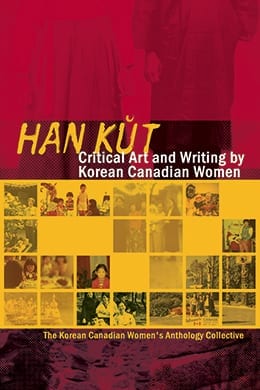
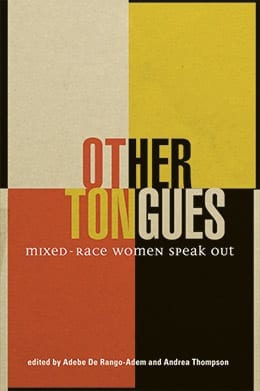
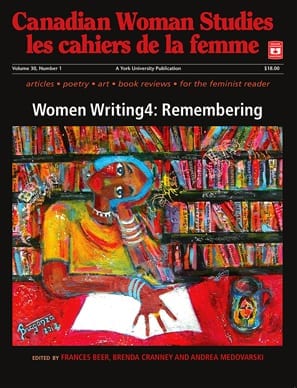
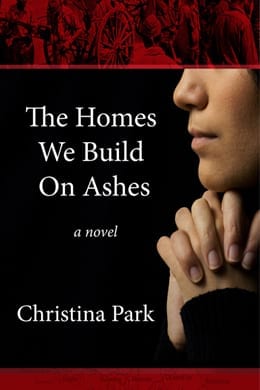

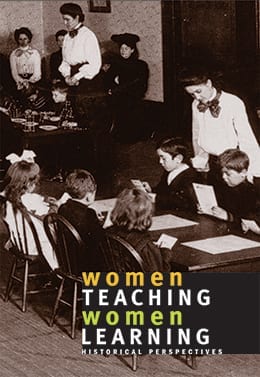
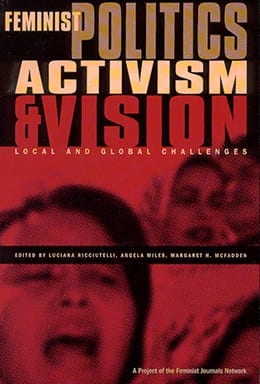
InannaWebmaster –
“These missives from the margins—passionate, wistful and witty, fiercely incisive— deserve to be read. These voices of Korean Canadian women who have blazed a trail as artists and writers deserve to be heard. So read, and listen.”
—Kerri Sakamoto, author of The Electrical Field
InannaWebmaster –
“This book is a provocative look at the lives of Korean women. One of the first on this topic, it is a grassroots collection written from a feminist perspective. It is heartwarming, challenging, and most of all, lovely to read: there is something for everyone and you do not need to be Korean to find the contributions to this collection fascinating.”
—Didi Khayatt, Professor, Faculty of Education, York University, and author of Lesbian Teachers: An Invisible Presence
InannaWebmaster –
Review by Sook C. Kong
“Han Kut is a text that gives the reader endless pleasure, the reader who wants to see a text that is multiply honest, that works with mind, body and spirit as a flow and not as split. If you know what has been ailing a lot of discourse since the Western Enlightenment centuries ago, you will know that many of today’s peoples are reeling, recoiling and suffering very deeply from that founding split.
Han Kut is a vital contribution to the conversation about what constitute the complexities and potential richness of Canadian culture, on what it really means to be a Canadian resident or citizen in a world in which its planetary citizens are multiply located. It takes the conversation on Canadian cultural realities deep into the cavern and lets it surface to flow over the entire terrain, from the plains of the West to the archipelago of the East, from the blinding white storms of the North to the peat of the South.
There are 35 holistic texts that make up the collection. Each piece belongs, each one says much, evokes much with no word out of place, no journey not respected, no slackness of mind, body and spirit. The writers and artists look at everything that a feeling-thinking- embodied woman would want to look at today: home, self and other, gender, sexual orientation, the crazy-nasty outcomes of the logic of late capitalism and the often even crazier outcomes between human beings entangled in all ways under the sun.
Almost every piece gave me an aha moment at the same time that it underscored and expanded my being, my soul. Han Kut’s texts made me laugh, made me choke back tears, made me do cartwheels over their audacious wit and accomplishments. I wish I could single out all the contributors, but I can’t for lack of space. Full credit goes to all the writers and artists, including the women of the collective that put the wonderful anthology together: Jin Huh, Patricia Lee, Ruthann Lee and Hijin Park. The collective invokes the mudang—woman as shaman. And the shaman-woman knows: She knows that “Everything is allowed, except interrupting a manifestation of love” (Paul Coelho). ”
Sook C. Kong writes, teaches and does the laundry in Vancouver.
Originally published in Herizons, Summer 2008, Vo/. 22, No. 1. Reprinted with permission. http://www.herizons.ca